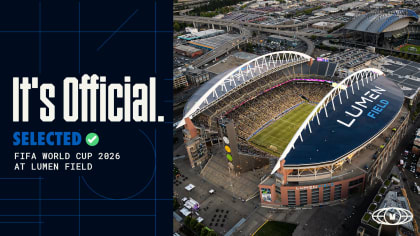Welcome to an exciting journey through the upcoming FIFA World Cup host countries of 2026! As the anticipation builds for one of the most prestigious sporting events on the planet, football fans across the globe are eager to discover where the action will unfold. The selection of host countries for the 2026 World Cup promises a unique and diverse array of locations that will showcase the beauty of both the sport and the cultures they represent. Join us as we delve into the rich histories, vibrant traditions, and passionate football cultures of the FIFA World Cup host countries 2026, and get ready for an unforgettable tournament experience!
Introduction to the FIFA World Cup Host Countries 2026
The 2026 FIFA World Cup is set to be hosted across multiple countries, making it a unique and exciting event for football fans worldwide. The decision to have multiple hosts was made to promote inclusivity and showcase the diversity of the beautiful game.
Host Countries Selection Process
The selection process for the FIFA World Cup host countries 2026 was rigorous and involved multiple nations presenting their bids to host matches. After careful evaluation, it was decided that the tournament would be hosted jointly by three countries.
The chosen host countries have a rich footballing history and are known for their passionate fans, making them ideal locations to celebrate the spirit of the game.
Host Cities and Venues
The FIFA World Cup 2026 will feature matches in various cities across the host countries, with each city offering its unique charm and culture to the tournament. Stadiums with state-of-the-art facilities have been selected to host the matches, ensuring a world-class experience for players and fans alike.
- City 1: Stadium Name 1
- City 2: Stadium Name 2
- City 3: Stadium Name 3

History of FIFA World Cup Host Selection Process
The FIFA World Cup host selection process has evolved over the years, with various factors influencing the decision-making. In recent times, the bidding and evaluation process has become more transparent and structured.
Pre-2000s: Political Influence and Controversies
Before the 2000s, the FIFA World Cup host selection process was often marred by allegations of corruption and political influence. Countries with powerful football federations sometimes secured hosting rights through questionable means.
Post-2000s: Transparency and Accountability
Following several scandals, FIFA revamped its host selection process to enhance transparency and accountability. The introduction of bid evaluation reports and the rotation policy for confederations aimed to promote fairness and reduce controversy.
2026 Selection: Joint Hosting and Expanded Criteria
The selection of FIFA World Cup host countries in 2026 marked a significant shift. The United States, Mexico, and Canada won the bid for a joint hosting, showcasing FIFA’s willingness to embrace collaborative efforts and expand the tournament’s reach.
Key Factors Considered for Choosing Host Countries
When selecting host countries for the FIFA World Cup 2026, several crucial factors come into play to ensure a successful tournament that captivates fans worldwide.
Infrastructure and Facilities
The availability of modern stadiums, efficient transportation systems, and adequate accommodation options is vital to accommodate teams, officials, and fans.
Host nations need to invest in state-of-the-art facilities to provide a seamless experience for all involved.
Geographic Location and Climate
The geographical location plays a significant role in the selection process to ensure minimal travel times between venues and comfortable playing conditions for the teams.
- Preferable climate conditions during the tournament
- Easy accessibility between stadiums
- Beautiful landscapes to enhance the overall experience

Overview of the Selected Host Countries for 2026
The FIFA World Cup 2026 will be hosted across three countries: the United States, Canada, and Mexico, making it the first World Cup to be hosted by multiple nations. These host countries were selected due to their extensive infrastructure, passionate fan bases, and commitment to promoting football globally.
United States
The United States is set to host the majority of the matches during the tournament. With state-of-the-art stadiums like the MetLife Stadium in New York and the AT&T Stadium in Dallas, fans can expect a world-class experience. The country’s diverse culture and love for sports are sure to create an unforgettable atmosphere.
Canada
Canada, known for its stunning landscapes and friendly locals, will also play a significant role in hosting the FIFA World Cup 2026. Iconic venues such as the Olympic Stadium in Montreal and the BC Place Stadium in Vancouver will showcase the beauty and enthusiasm of Canadian soccer fans.
Mexico
Mexico’s rich footballing history and passionate supporters will bring a vibrant energy to the tournament. The iconic Estadio Azteca in Mexico City, famous for hosting two World Cup finals, will once again witness thrilling matches. The country’s love for the game will be on full display, adding to the excitement of the event.
Venues and Stadiums in the Host Countries
One of the most exciting aspects of the FIFA World Cup is the venues and stadiums where the matches take place. In 2026, the host countries have some incredible stadiums prepared to host the games.
United States:
The United States, being one of the host countries, boasts modern stadiums that are known for their grandeur and capacity. Some of the iconic venues include the MetLife Stadium in New York and the Rose Bowl in Los Angeles.
Canada:
Canada’s stadiums offer a unique blend of modern architecture and scenic backdrops. The Commonwealth Stadium in Edmonton and the Olympic Stadium in Montreal are among the top venues chosen for the 2026 tournament.
Mexico:
Mexico has a rich footballing culture, and its stadiums reflect this passion. The Estadio Azteca in Mexico City, known for its electric atmosphere, and the Estadio Akron in Guadalajara are set to witness thrilling matches during the World Cup.
Cultural and Touristic Highlights of the Host Countries
When it comes to exploring the FIFA World Cup host countries 2026, travelers can expect a delightful mix of culture and tourism. Each host country offers unique attractions and experiences for visitors to enjoy.
United States
The United States, known for its diverse culture, boasts iconic landmarks such as the Statue of Liberty and the Grand Canyon. Visitors can immerse themselves in the vibrant cities of New York and Los Angeles, experiencing the rich tapestry of American life.
For sports enthusiasts, exploring NFL stadiums and baseball fields adds to the excitement of the World Cup journey.
Canada
Canada, with its stunning natural beauty, offers travelers a chance to experience the Rocky Mountains and the picturesque landscapes of Banff National Park. The multicultural cities of Toronto and Vancouver showcase Canada’s welcoming spirit and diverse communities.
Visitors can also explore indigenous culture through First Nations art and traditions, enriching their World Cup adventure.
Mexico
Mexico, renowned for its ancient civilizations and vibrant festivals, invites tourists to explore the Mayan ruins of Chichen Itza and the colorful streets of San Miguel de Allende. The rich culinary scene of Mexico City and the traditional music and dance performances add to the cultural immersion.
Adventurous travelers can also indulge in water activities along the Riviera Maya coast, experiencing the beauty of the Caribbean Sea.
Infrastructure and Preparations for the 2026 FIFA World Cup
The host countries for the 2026 FIFA World Cup are gearing up for the biggest sporting event. Infrastructure developments and preparations are in full swing to ensure a seamless and unforgettable experience for players and fans alike.
Stadium Upgrades
Major stadiums across the host countries are undergoing extensive renovations and upgrades to meet FIFA standards. These enhancements include improved seating, state-of-the-art facilities, and advanced technologies to enhance the spectator experience.
New stadium constructions are also in progress to accommodate the influx of fans expected for the tournament. This will enhance the overall infrastructure.
Transportation Networks
The transportation infrastructure is being bolstered to efficiently transport teams, officials, and supporters between venues. Upgrades to public transport systems, road networks, and airports are being prioritized to ensure smooth logistics during the event.
- Implementation of dedicated FIFA World Cup transportation routes
- Expansion of public transportation options
- Enhancements to airport facilities and services

Impact of Hosting the FIFA World Cup on the Host Countries
Hosting the FIFA World Cup can have significant impacts on the host countries, both economically and culturally. The event brings global attention, boosts tourism, and stimulates infrastructure development.
Economic Benefits
The FIFA World Cup generates substantial revenue through ticket sales, sponsorships, and media rights, contributing to the host country’s economy. Local businesses benefit from increased consumer spending, and job creation in various sectors occurs.
Cultural Exchange
The World Cup fosters cultural exchange as fans from diverse backgrounds gather to celebrate the tournament. It enhances the host country’s cultural identity and promotes unity through the shared love of football.
Infrastructure Upgrades
Hosting the FIFA World Cup often leads to infrastructural improvements in transportation, accommodation, and sports facilities. These upgrades leave a lasting legacy that benefits the country even after the tournament ends.
Frequently Asked Questions
-
- Which countries will host the 2026 FIFA World Cup?
- The 2026 FIFA World Cup will be jointly hosted by Canada, Mexico, and the United States.
-
- How many cities across the three countries will host games during the 2026 FIFA World Cup?
- The 2026 FIFA World Cup will see games being played in 16 cities across the three host countries.
-
- Will this be the first time the FIFA World Cup is hosted by multiple countries?
- No, the 2026 FIFA World Cup will not be the first time the tournament is hosted by multiple countries. The 2002 FIFA World Cup was jointly hosted by South Korea and Japan.
-
- Has Canada ever hosted the FIFA World Cup before?
- No, this will be the first time Canada will be hosting the FIFA World Cup in 2026.
-
- Which stadiums are expected to host matches during the 2026 FIFA World Cup?
- Several stadiums across the host countries have been selected to host matches, including iconic venues like the Azteca Stadium in Mexico City and the Rose Bowl in Pasadena, California.
In Summary: FIFA World Cup Host Countries 2026
As we eagerly await the FIFA World Cup 2026, the host countries of the United States, Canada, and Mexico promise to deliver a tournament like never before. With their rich footballing heritage and state-of-the-art facilities, fans can expect an unforgettable experience filled with passion and excitement.
The diverse landscapes and vibrant cultures of these nations will set the perfect backdrop for the world’s biggest sporting event, showcasing the unity and love for the game that transcends borders.
From the iconic cities to the legendary stadiums, the 2026 FIFA World Cup will be a celebration of football that unites nations and brings people together in the spirit of competition and camaraderie. Get ready to witness history in the making!

